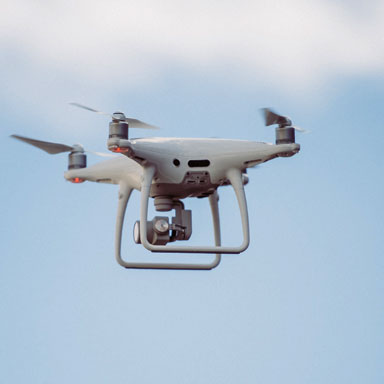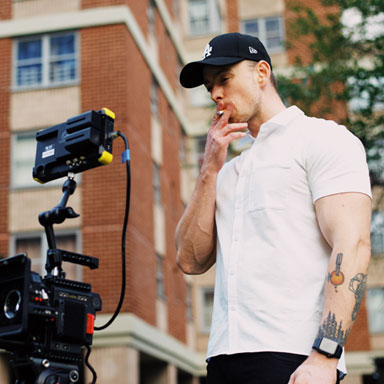Whenever we initially meet Anne (Deragh Campbell), she’s in two spots immediately. Tenderly measuring a butterfly in her grasp, she ushers it onto a little kid’s shoulder as different youngsters look on, hypnotized by her capacity to catch the slippery animal. All of a sudden, the camera cuts in this independent movie from a snapshot of quiet to one of invigoration – Anne is getting ready to leap out of a moving plane for her dearest companion’s single girl party. The two scenes are intertwined to where we don’t have the foggiest idea where one finishes and one starts, similar to somebody attempting to sort out indistinct sections of ancient remnants of the past.
It’s a hyper prologue to “Anne at 13,000 Ft.,” Canadian chief Kazik Radwanski’s representation of a precarious lady attempting to explore her day to day existence, and it sets us awake for 75 minutes of fits and starts as we are jolted starting with one episode then onto the next. While this independent movie procedure is tension initiating and on occasion baffling to watch, Campbell’s stunning presentation turns into the film’s focal point of gravity, her enthralling feeling of bedlam and intricacy giving the crowd passionate movement disorder as her states of mind shift between limits.
These initial shots end up being the high point for Anne – she has a partiality for flying, regardless of whether she’s skydiving or noticing a winged butterfly. It’s the point at which she returns to earth that her challenges start, however its indistinct assuming her following mental choppiness is set off by the leap, or just exacerbated by it. In this independent movie we watch as Anne battles with social connections and places herself in circumstances that may be viewed as unsafe, particularly with more seasoned men. At the childcare community where she works, she clashes with (Suzanne Pratley), a senior associate who rebukes her for defying the middle’s norms. While Anne’s anxiety that she’s in effect unjustifiably designated is thoughtful on occasion, it’s not completely certain whether or not Anne’s off base. Later she goes on a web-based date with a distressingly off-kilter protection sales rep, swallowing down her brew as the scene closes unexpectedly, leaving the resulting occasions up for translation.
This independent movie is vague and is painstakingly created, the aftereffect of a coordinated effort between its chief and star. Campbell, who ad libbed a significant part of the exchange over its two-year work shopping and creation period, gets a composing credit close by Radwanski, who made the job explicitly for her. Together, the two create a profoundly dynamic person concentrate on that will not choose a specific state of mind or passionate environment. Like John Cassavetes and Gena Rowlands in “A Woman Under the Influence,” the pair figure out how to easily sprinkle peculiar snapshots of humor into the most over the top upsetting passionate struggles, showing how it’s feasible to encounter two contradicting feelings immediately. It’s no little accomplishment to channel a similar energy as somebody like Rowlands, yet the similitudes between the extraordinary entertainer and this new kid on the block are shocking in this independent movie.
Campbell’s whimsical on-screen presence, combined with Nikolay Michaylov’s perseveringly claustrophobic camerawork, undermines things further, holding us back from getting a full image of Anne’s internal world. The film is shot totally in close-up, giving the characters’ frequently trite activities an awesome quality, as though they can’t be held back inside the casing. The camerawork is just about as bewildering and hasty as Anne herself, a thrill ride you’re attempting frantically to get off. Radwanski scares his crowd intentionally, notwithstanding, knowing that while they might be awkward, they can’t turn away.
This is the third portion in Radwanski’s set of three of films. This independent movie emphasis is on outcasts unfit to shape significant associations with others, following “Pinnacle” (2012), and “How Heavy This Hammer” (2015), which both follow men as their lives become progressively separated and useless. With Anne, the chief directs his concentration toward a female hero, mirroring his longstanding interest with the destruction of female courageous women, including crafted by Cassavetes and Rowlands, and the coordinated efforts between Elisabeth Moss and Alex Ross Perry.
Campbell, who looks like a youthful Deborah Kerr (less the severe feeling of levelheadedness,) conveys a presentation suggestive of these notorious female screw-ups. Campbell’s weakness is her solidarity as an entertainer. As she drinks herself into a daze subsequent to conveying a meandering aimlessly, real to life house keeper of honor discourse at the wedding of her dearest companion Sarah (played by the Canadian artist Dorothea Paas, who gives the film’s mixed shutting credits tune, “Holder”), she’s gotten by individual visitor Matt (Canadian movie producer Matt Johnson), who returns her to his lodging. Like Rowlands and Barbara Loden’s characters, Anne appears to know nothing about the mischief that could come to her, and we’re shocked when she and Matt beginning dating – in light of the power outage that shuts the scene, we accept the result will be far more terrible.
“You’re an odd young lady, you know that,” Matt tells Anne when she makes an appearance to his entryway unannounced. This infantilization turns out to be essential for Anne’s persona – her hair is chaotic and leaf-filled, similar to a kid getting back home from childcare, and her bashful calmness causes her to appear to be more youthful than her 27 years. Regardless of this honest quality, Anne is reluctant to acknowledge help from her concerned mother (Lawrene Denkers). Her mom treads lightly for her little girl, and later we get why, as Anne twistings into a vicious episode – Radwanski doesn’t enlighten us concerning how it began – that sends her stomping out the entryway. Campbell and Denkers make an unquestionably appealing mother-little girl science, and their relationship quietly indicates a background marked by inner unrest without illuminating what might have occurred previously.
While she will not open dependent upon her mom, Anne is more than anxious to search out help at badly arranged times from Sarah, who works at the childcare place with her. In this independent movie Anne gradually erodes at Sarah’s understanding as she examines her relationship issues before the kids: “It’s diverting on the grounds that you can’t be mulling over everything while have arrived,” Sarah at last says. “It’s not exactly reasonable for me.” Anne’s horrendous conduct appears to influence everybody around her, eventually disintegrating her last existing emotionally supportive network.
The indepenent works to an overwhelming enthusiastic crescendo and a monstrously dedicated show of unpredictability from Campbell that is difficult to shake. It’s the blast we’ve been expecting, and maybe one that Anne’s required the entire time, however we couldn’t say whether it’s aided or hurt her. Radwanski and Campbell leave things open-finished, not depending on conventional outlining or account constructions to recount Anne’s story; it’s a fitting decision for a film about the perplexing idea of being estranged from yourself. We’re just offered looks at Anne, a ridiculously surprising person, without truly seeing things through her eyes. Anne gets back to skydiving a few times all through the film as she trains to bounce unaccompanied. Peculiarly, these are the main times she gives off an impression of being completely clear and calm, and we’re passed on to consider what it resembles to feel the most grounded while you’re tumbling from the sky.




